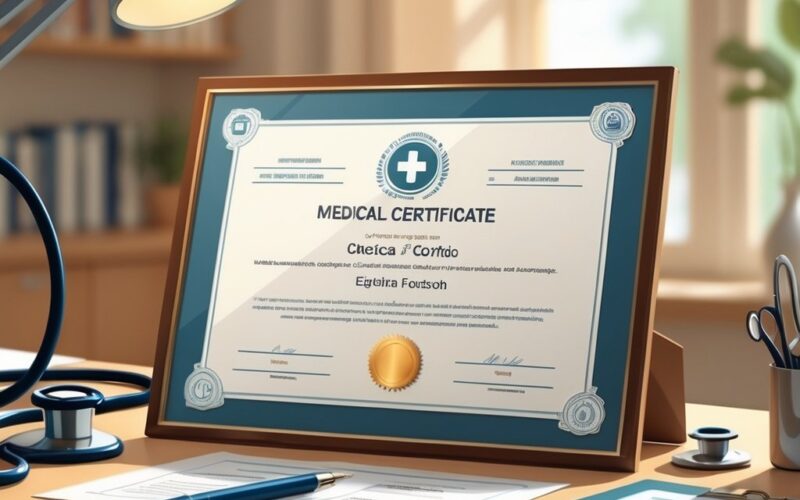Medical certificates prove your health status for work, school, or legal matters. Lots of folks want to know if they can get these certificates without paying, especially when they need one fast for sick leave or emergencies.
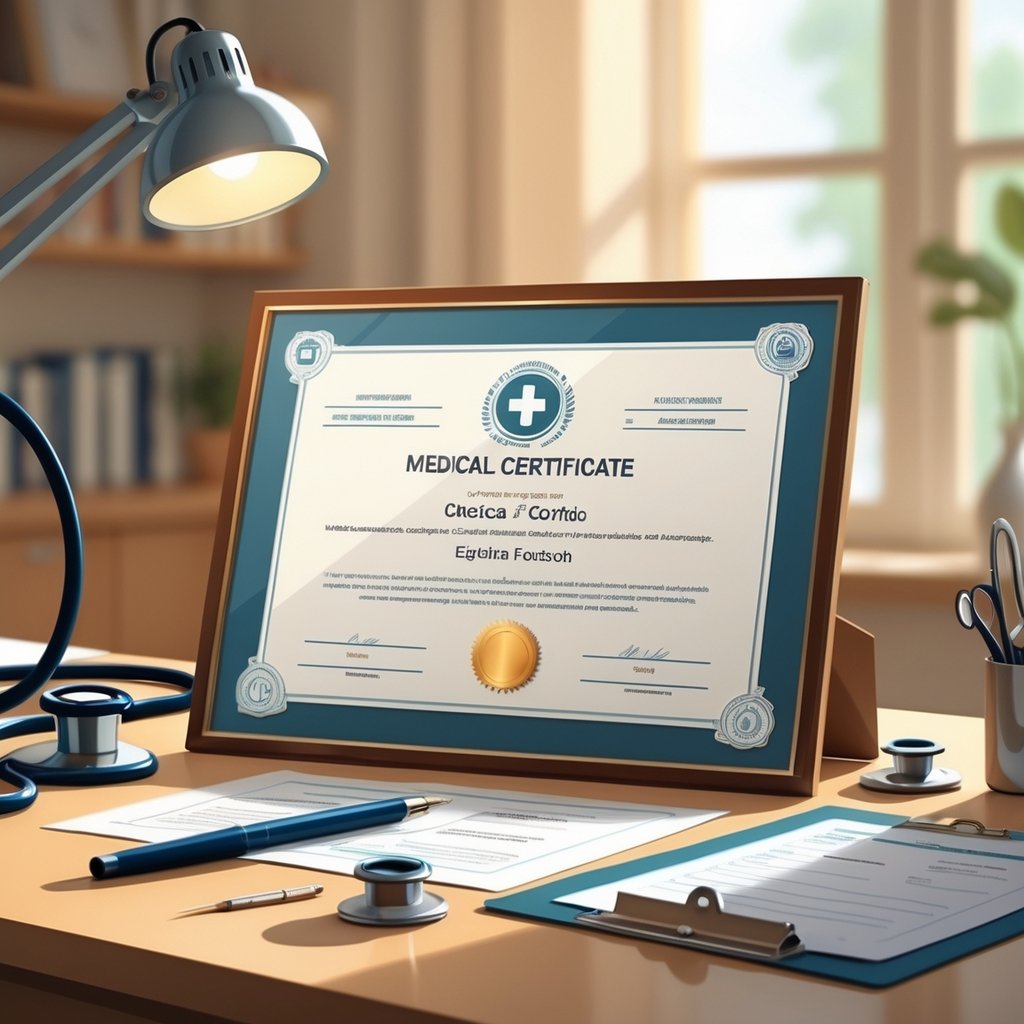
Most medical certificates aren’t totally free since you usually need to see a licensed doctor. The cost covers the doctor’s time and the official document.
Still, you can find free medical certificate templates online for basic needs.
Some telehealth platforms, non-profits, and educational institutions might offer free medical certificates online under certain circumstances. These freebies often come with strings attached or limited features.
Key Takeaways
- Medical certificates usually cost money, but free templates and limited free services do exist
- Licensed medical professionals must issue certificates for them to be legally valid
- Free options may have restrictions or eligibility rules
Are Medical Certificates Free?
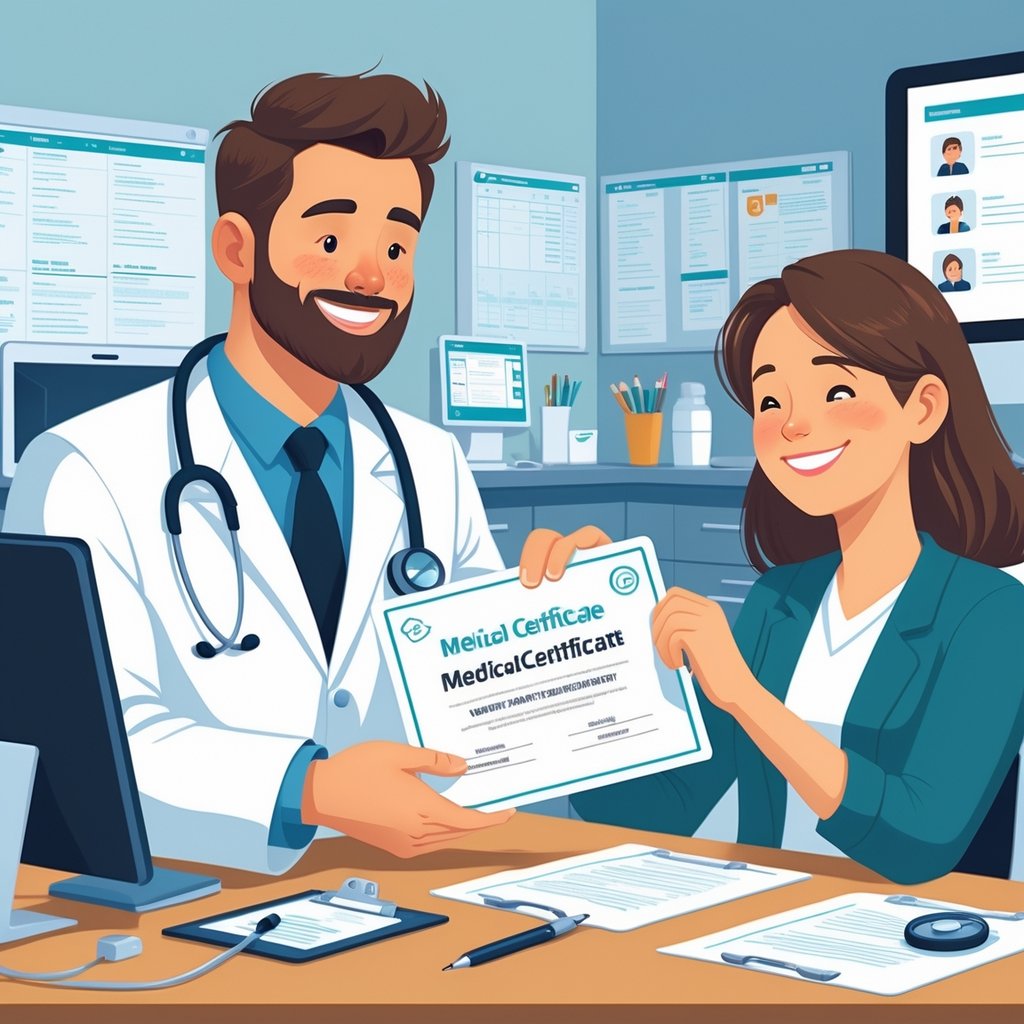
Sometimes you can get a medical certificate for free, but more often, there’s a cost. It depends on your healthcare provider, insurance coverage, and the type of visit.
Where You Can Get a Free Medical Certificate
Bulk-billing clinics let you get medical certificates for free. They bill Medicare directly, so you don’t pay out of pocket.
Community health centers sometimes offer free medical certificates, especially for people with low incomes or no insurance.
Some non-profit organizations provide free telehealth services for medical certificates. These are aimed at people who can’t afford regular doctor visits.
Public hospitals may give you a free certificate if you’re treated in their emergency room. This only happens if you actually receive care there.
Your workplace doctor might hand out free certificates during occupational health visits. Some employers cover these costs.
University health centers often include free medical certificates for enrolled students as part of student fees.
Situations When You Must Pay for a Medical Certificate
You’ll pay when visiting most private doctors who use mixed billing. Only 23.6% of clinics in Australia bulk bill everyone. Most charge private fees.
If your doctor’s fee is higher than what Medicare covers, you pay the gap. Even private health insurance doesn’t always cover it.
Online medical certificate services usually charge fees around $12.99 for quick digital certificates. They’re convenient but not free.
After-hours clinics and weekend appointments tend to cost more. Healthcare providers raise fees outside normal hours.
Specialist doctors almost always charge for certificates. They rarely bulk bill and often cost more than general practitioners.
Differences in Cost by Healthcare Provider
Bulk-billing clinics don’t charge you for standard consultations and certificates. Just show your Medicare card and you’re done.
Mixed-billing practices offer free visits for kids and pension cardholders. Others pay upfront and claim part of it back from Medicare.
Private specialists charge a lot more, often $150 to $300 per visit. The cost of your certificate includes the full consultation fee.
Online platforms like telehealth services charge flat rates between $10 and $50 per certificate. These prices are usually clear with no surprises.
| Provider Type | Typical Cost | Medicare Rebate |
|---|---|---|
| Bulk-billing GP | $0 | Full coverage |
| Mixed-billing GP | $30-$80 | Partial rebate |
| Private specialist | $150-$300 | Small rebate |
| Online service | $10-$50 | No rebate |
Public hospital emergency departments might give you a free certificate if you’re treated there. It’s not a good idea to go to the ER just for a certificate unless you have a real emergency.
Free Medical Certificate Templates and Forms
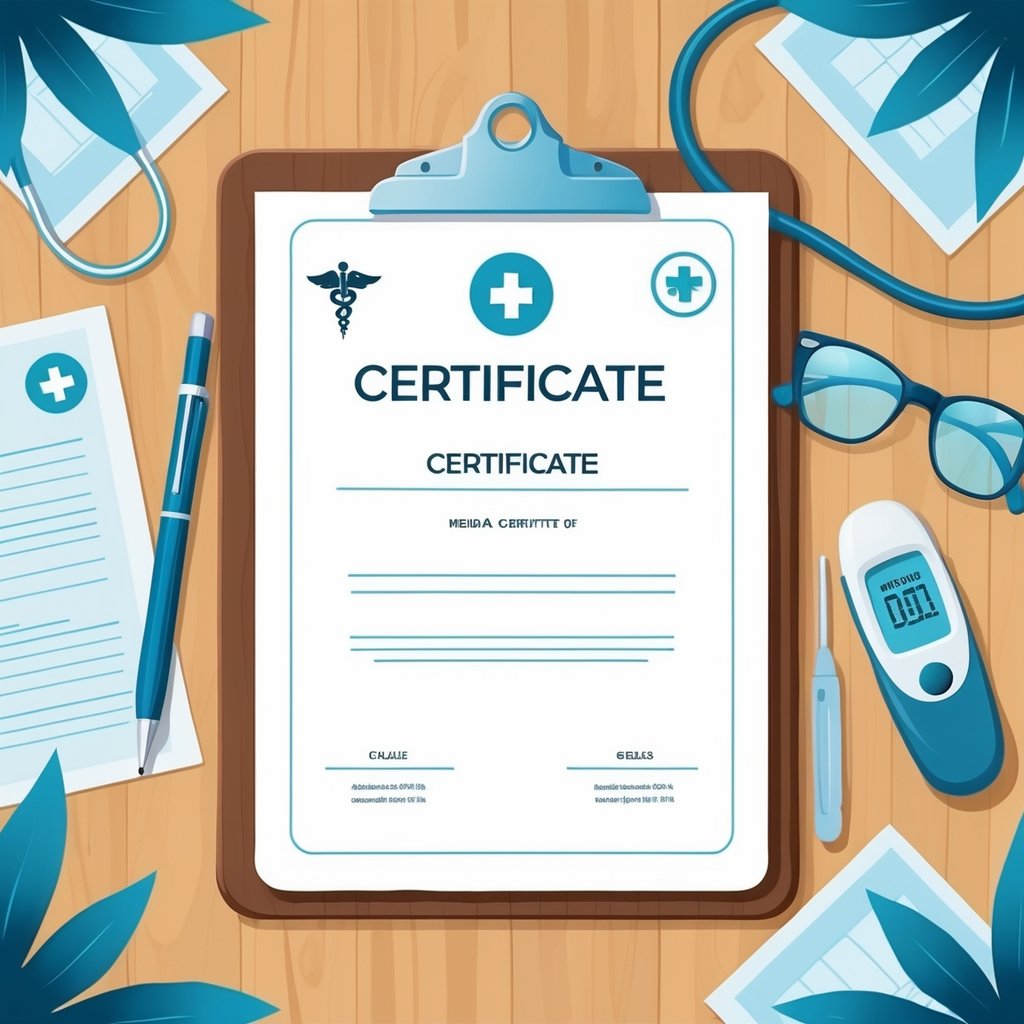
You’ll find free medical certificate templates in PDF and Word formats on many websites. Doctors can customize these templates for patients.
These templates cover sick leave, fitness certificates, and disability documentation. They’re designed to meet legal requirements.
Types of Free Medical Certificate Templates
You can grab free medical certificate templates online for different purposes.
Sick Leave Certificates help when you need time off work for illness. They include spots for diagnosis dates, treatments, and rest periods.
Fitness Certificates show you’re healthy enough for certain activities like sports, jobs, or travel. They include physical exam results and clearances.
Disability Certificates document disabilities for insurance claims and accommodation requests. These forms describe medical conditions and limitations.
Medical fitness certificates use templates that mix features from fitness, disability, and sickness certificates.
How to Access and Use Free Printable Medical Certificates
You can find free editable templates on many sites for instant download.
Most platforms offer PDF and DOCX formats. PDFs are best for quick printing, while Word docs let you make changes.
Professional templates are available from specialized sites. Some let you preview in real time as you edit.
Popular sources include Adobe Express, Google Docs, and dedicated template websites. Many let you customize medical certificates online without installing anything.
Customizing a Free Medical Certificate Form
Customizable templates let doctors adjust forms for specific patients.
You can edit fields like name, birthdate, and contact info. Medical sections let you add diagnosis codes, recommendations, and timelines.
Most templates have editable headers for your clinic name, address, and license number. You can tweak the layout, fonts, and colors to match your practice.
Key areas to customize:
- Patient info and medical history
- Medical conditions and symptoms
- Treatment dates and follow-up plans
- Doctor’s signature and license details
Check that your customized certificate matches local standards and legal requirements.
Legal Validity and Requirements for Medical Certificates

Only licensed healthcare professionals can issue valid medical certificates. These documents need specific info about the patient and provider to meet legal standards.
Eligibility to Issue Medical Certificates
Licensed professionals are the only ones who can issue valid certificates. This means doctors, nurse practitioners, and other qualified providers with real credentials.
Only licensed medical professionals can issue certificates. If someone without a medical license gives you a certificate, it won’t count.
Healthcare providers need active licenses and registration numbers to prove their authority.
Restrictions exist for certain types of certificates. Some require doctors with special qualifications.
You can’t get a legally valid certificate from unlicensed people. Alternative medicine practitioners without medical degrees usually can’t issue legal certificates.
Essential Components of a Valid Medical Certificate
Every certificate needs certain details or it won’t be accepted for official use.
Patient details are essential. A valid medical certificate lists your full name, date of birth, and contact info.
The provider’s info must be clear on the certificate. That means their name, registration number, clinic address, and signature.
Dates matter—both the examination date and the date the certificate was issued. Date of issuance and validity should be obvious.
Certificates need an official stamp or letterhead from the provider. Handwritten notes without authentication usually don’t meet legal standards.
The findings and recommendations from your medical exam must be included. That covers diagnosis, treatment duration, or fitness results.
Purposes for Requesting a Medical Certificate
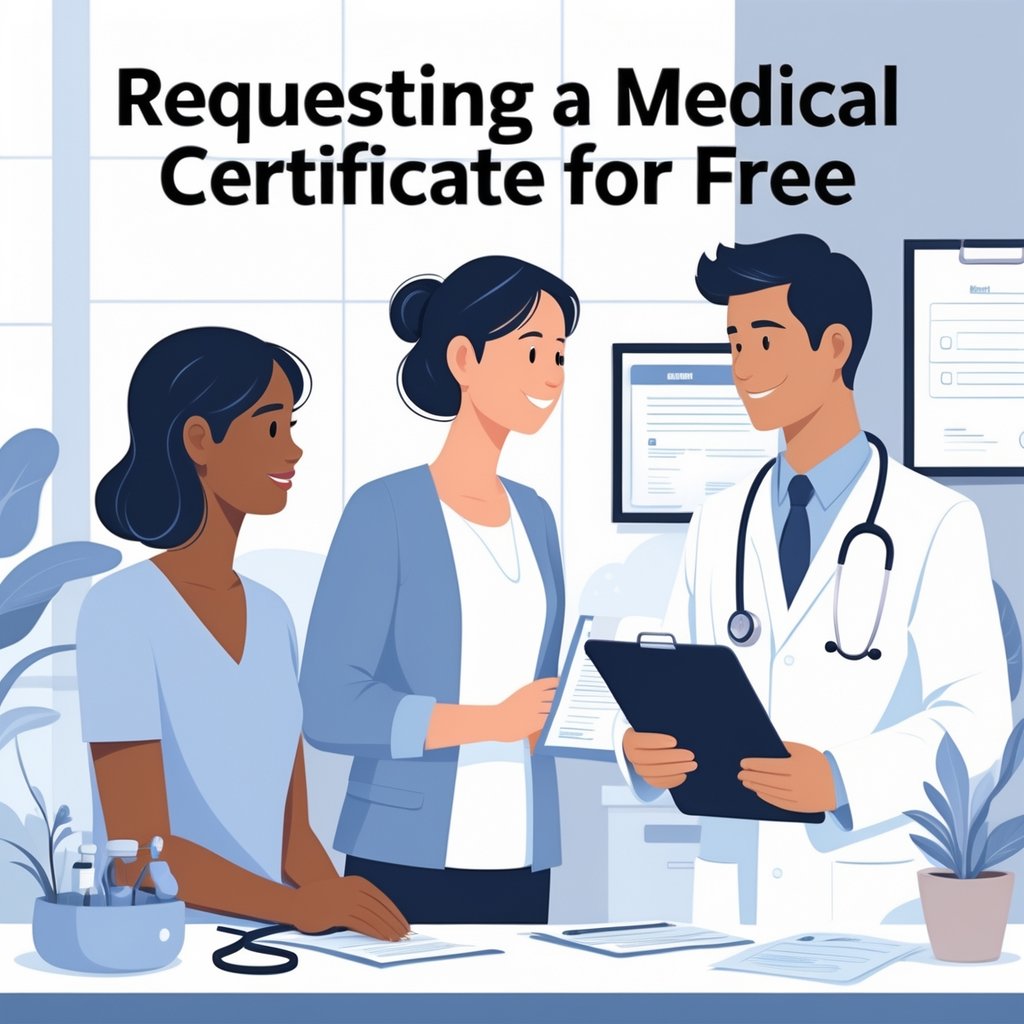
Medical certificates serve different roles in work, school, and insurance. The reason you need one can affect the requirements and cost.
Sick Leave and Workplace Absences
Employers often want medical certificates for sick leave to confirm your absence. Your company’s policy decides when you need to show one.
Most jobs ask for a certificate if you’re out more than three days. Some want one for any sick day. Check your handbook for details.
The certificate should include your name, absence dates, and the doctor’s signature. It only needs to confirm you couldn’t work for medical reasons. Your doctor doesn’t have to list your diagnosis.
Pre-employment medical assessments need certificates too. Employers use these to make sure you can safely do the job, especially in physical or safety-sensitive roles.
You usually pay for certificates related to employment. Employment certificates often have fees.
School Absence and Academic Requirements
Schools and universities want medical certificates for long absences. This helps them tell the difference between real medical issues and unexcused absences.
You might need a certificate for missing several days, exams, or big assignments. Each school sets its own rules.
Students in sports need fitness certificates before joining teams. These show you’re healthy enough for the activity. The doctor checks for heart problems and other risks.
Academic certificates must have your name, student ID, and dates you missed. They should confirm you couldn’t attend for medical reasons.
School-related certificates sometimes cost less than workplace ones. Ask your school’s health center about their policies.
Insurance Claims and Documentation
Insurance companies often ask for medical certificates to process claims. These documents prove your condition or treatment.
Health insurance claims need certificates listing your diagnosis and treatment dates. Insurers use them to make sure your care was necessary.
Disability insurance claims need more detailed documentation. Your certificate must explain how your condition affects your ability to work.
Insurance certificates can be free in some cases. Many providers won’t charge if the certificate is for a legitimate insurance claim.
Travel insurance claims use medical certificates if you have to cancel a trip due to illness. Keep all your medical paperwork for these claims.
Ask your insurer what info they need before you request a certificate. That way, you won’t have to go back and forth later.
Medical Assessments and Examinations
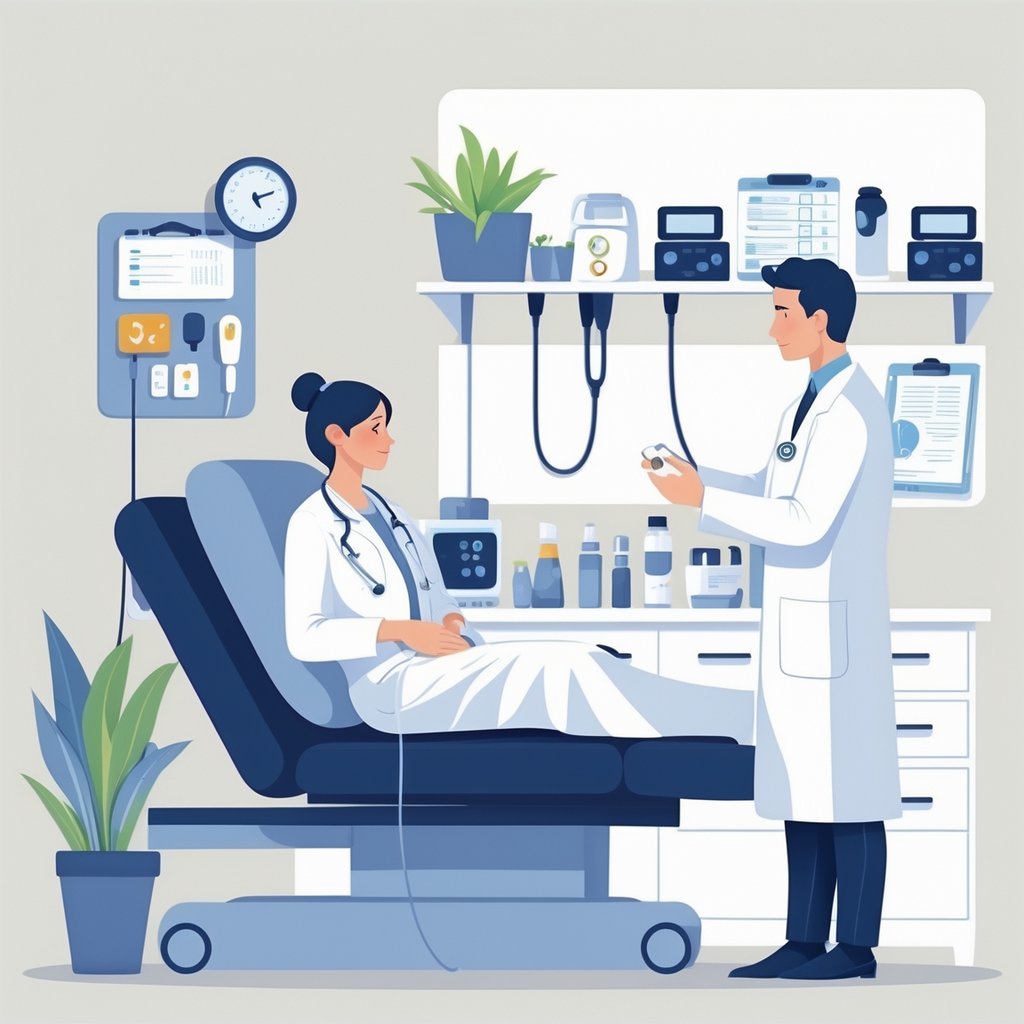
Medical assessments decide if you’re fit to receive certificates. Examinations confirm you meet specific health standards.
These evaluations stick to strict protocols. Approved healthcare providers must complete them.
When a Medical Assessment Is Needed
You need a medical assessment before getting most aviation certificates. Timing depends on your certificate type and age.
For FAA medical certificates, you’ll need assessments at regular intervals:
- First-class: Every 6 months if over 40, annually if under 40
- Second-class: Every 12 months
- Third-class: Every 24 months if over 40, every 60 months if under 40
BasicMed has different timing. You’ll need a new assessment every 48 months with a state-licensed physician.
Some medical conditions mean you need an immediate assessment. Heart problems, neurological disorders, and mental health conditions are common triggers.
Get your assessment before your certificate expires. Flying with an expired certificate breaks FAA rules.
Role of the Medical Examination in Certificate Issuance
The medical examination decides if you qualify for a certificate. No one gets a certificate without passing this step.
Aviation Medical Examiners (AMEs) handle most pilot examinations. These approved medical professionals check your physical and mental fitness for flying.
For BasicMed, any state-licensed physician can do the examination. They fill out the Comprehensive Medical Examination Checklist during your visit.
The examination covers:
- Vision and hearing tests
- Blood pressure and heart rate checks
You’ll also get a neurological assessment. The provider reviews your medical history and mental health.
If you fail, you can’t get a certificate. You’ll need to address medical issues before trying again.
Some conditions need special FAA approval. This takes more time and paperwork.
Limitations and Considerations for Free Medical Certificates
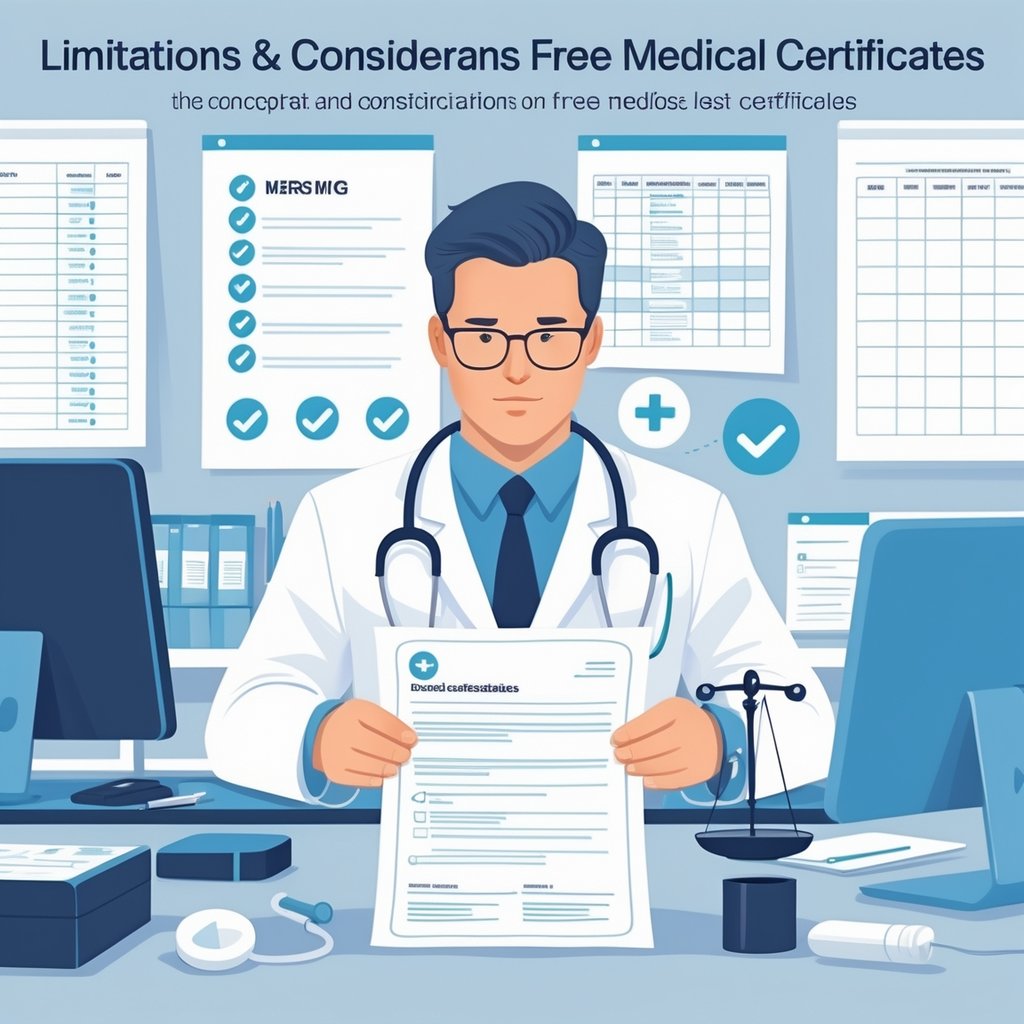
Free medical certificates sound tempting, but there’s a catch. Generic templates often lack credibility and bring serious legal concerns.
Knowing the risks helps you make better choices about getting legitimate medical documentation.
Risks of Downloading Generic Templates
Generic templates can really hurt your professional and legal standing. These downloadable forms don’t have the authority employers or institutions expect.
Most templates can’t be verified. Employers often contact the supposed clinic to check, and when they find out it’s fake, you could lose your job.
Common template problems:
- No medical professional signature
- Wrong medical terminology
- Old formatting
- Missing letterhead or clinic details
Templates rarely include proper patient info. Real certificates list specific details about your condition and treatment dates.
Privacy, Legality, and Medical Professional Responsibility
Using fake certificates can get you in trouble fast. Submitting false documentation is fraud in most places.
Healthcare providers have serious responsibilities when issuing certificates. They have to examine patients and verify conditions before signing anything. Medical certificates should only be issued if it’s truly in the patient’s best interest.
Legal risks include:
- Getting fired
- Criminal fraud charges
- Losing a professional license (if you have one)
- Insurance claim denial
Templates don’t protect your privacy. Real providers keep your info secure, but free templates offer no such protection.
Real doctors also provide follow-up care and keep proper records. Templates just can’t do that.
Frequently Asked Questions

Medical certificate costs depend on your provider, insurance, and why you need the certificate. Some government programs and special situations offer free certificates to those who qualify.
What are the circumstances under which a medical certificate may be issued without charge?
Some providers include a free certificate in your regular consultation if you already paid for the visit. In emergencies, you might get documentation without extra cost.
Government health programs sometimes offer free or low-cost certificates to people who need help. Community health centers and public hospitals may also waive fees for patients who can’t pay.
Some employers pick up the cost when they require certificates for work injuries or illnesses. Workers’ comp cases usually cover certificate expenses as part of medical costs.
Are patients entitled to a free medical certificate for employment or educational purposes?
You don’t automatically get a free certificate for work or school. Most providers charge a separate fee for paperwork like this.
Who pays often depends on who needs the certificate. Some employers reimburse you, especially for workplace injuries or required fitness checks.
Schools almost never pay for certificates. You’ll probably pay out of pocket for documentation for absences or accommodations.
How does healthcare insurance coverage affect the cost of obtaining a medical certificate?
Most health insurance plans don’t cover certificate fees. Insurance usually treats them as non-medical services.
Check your policy to be sure. Some insurance covers certificates in rare situations, like disability claims or pre-authorization.
Premium plans might include some administrative services. It’s best to ask your insurance provider directly about certificate fees.
What are the regulations pertaining to the issuance of complimentary medical certificates by healthcare providers?
Providers set their own certificate fee policies. No federal law forces doctors to give free certificates, though some states have rules.
Licensed doctors must follow professional standards, paid or not. The accuracy and completeness of the certificate shouldn’t change based on payment.
Medical boards sometimes have guidelines on reasonable fees. Providers can’t charge so much that it blocks access to needed documentation.
Can individuals on government assistance programs receive a medical certificate at no cost?
Medicaid and most government programs don’t cover certificate fees. These benefits usually only pay for actual medical care.
Community health centers might offer sliding scale fees or waivers. If you can’t afford the fee, you can apply for help at these places.
Some state disability programs provide free certificates for benefit applications. Check with your local social services office to see what’s available in your area.
Is there a difference in the cost of medical certificates for inpatient versus outpatient services?
Hospital inpatient certificates often cost more than outpatient ones. Hospital documentation systems are complex, and preparing discharge summaries or detailed medical reports takes extra administrative time.
Outpatient clinic certificates are usually cheaper and get processed faster. If you just need a simple sick leave certificate from an urgent care center or family doctor, expect a standardized, lower fee.
The type and complexity of the medical certificate affects pricing more than the care setting. Detailed disability evaluations almost always cost more than basic fitness-for-work certificates, no matter where you go.






